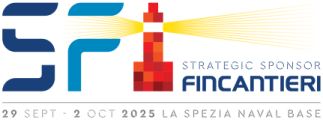- A CUTTING-EDGE AND FUTURE-ORIENTED CONFERENCES PROGRAM
CONFERENCES
A CUTTING-EDGE AND FUTURE-ORIENTED CONFERENCES PROGRAM
CONFERENCES AND WORKSHOPS
The conferences at SEAFUTURE offer a crucial opportunity for industry professionals to stay updated on the latest developments in the Blue Economy and environmental sustainability. They bring together industry leaders, organisations, and institutions to discuss the opportunities, challenges, and strategies that are shaping the future of these fields. This is a chance to engage in high-level debates, network, and gain insights into emerging trends.
SEAFUTURE stands out as the ideal venue for this exchange, gathering experts from around the globe to connect, share ideas, and explore innovative solutions that drive progress in marine industries and sustainability. Participants can learn about cutting-edge researches, new technologies, and best practices aimed at balancing economic growth with the preservation of marine ecosystems. It is a unique setting that encourages collaboration and the development of forward-thinking strategies for a more sustainable future.
TOPICS
At SEAFUTURE 2025 you can explore the following topics:
Conference Programme
Discover the rich lineup of conferences and workshops of the eighth edition of SEAFUTURE
























